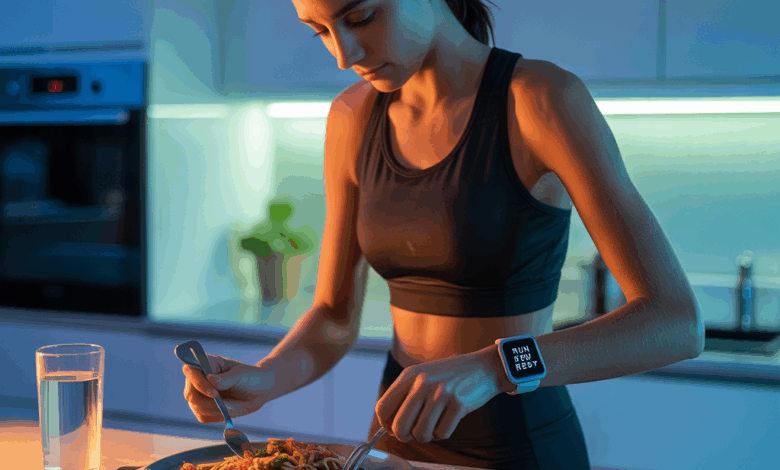What To Eat The Night Before A Long Run

Have you ever lain awake the night before a big weekend long run, wondering whether that dinner choice will make or break your miles? What to eat the night before a long run can feel like a small science experiment—with your stomach and legs as the lab rats. The good news: with a few simple principles and tasty meal examples, you can walk into race morning confident, fueled, and ready to run strong.
Why the pre-run dinner matters
Carbohydrate stores, hydration status, and sleep quality are all influenced by what you eat and drink the night before. Your muscles top up glycogen overnight, so a balanced, easily digestible dinner helps maximize energy reserves without leaving you bloated or restless. Think of this meal as the foundation for everything you’ll do the next day: pacing, power, and mental focus.
Key goals for the evening meal
- Refuel glycogen with moderate-to-high carbs
- Include a moderate amount of lean protein for repair
- Avoid excessive fat and fiber that slow digestion
- Hydrate thoughtfully—salty foods can help retain fluids
- Keep portion sizes comfortable so you sleep well
What to eat the night before a long run: practical meal ideas
Below are easy-to-make dinners that hit the marks for most runners. Swap proteins, veggies, and grains to suit your digestion and preferences.
Classic pasta with lean protein
Whole-grain or white pasta, a light tomato sauce, grilled chicken or turkey, and a side of steamed spinach. Carbs for glycogen, protein for muscle repair, and greens for micronutrients. Avoid heavy cream sauces or extra cheese if you’re prone to stomach issues.
Rice bowl with roasted vegetables and salmon
White or jasmine rice (easier to digest than brown for some), roasted sweet potato, broccoli, and a modest portion of salmon for omega-3s. Add a small drizzle of olive oil—just enough to add flavor without slowing digestion.
Baked potato or sweet potato + cottage cheese or lean chili
A simple option: a baked potato topped with cottage cheese and chives, or a lean turkey chili. Potatoes provide starchy carbs and are gentle on the gut. Keep the spice level moderate to avoid GI surprises.
Oatmeal with banana and a side of yogurt
If you prefer a lighter, earlier dinner: cooked oats with mashed banana and a spoonful of honey, plus Greek yogurt for protein. Easy to digest and comforting—great if you have an early bedtime.
Timing, portion sizes, and hydration
When to eat matters as much as what you eat.
- Timing: Finish your meal 2–4 hours before bed. This gives digestion time and reduces the chance of reflux or disturbed sleep.
- Portion size: Aim for a plate that’s roughly 60–70% carbs, 15–20% protein, and 10–20% fat. Keep it satisfying but not stuffed.
- Hydration: Sip water throughout the evening. Include a small salty snack if you’re a heavy sweater or the forecast predicts heat—electrolytes help retain fluid overnight.
Foods to avoid the night before
Some items tend to cause trouble for runners:
- High-fiber dinners (large salads, beans, cruciferous veggies) — can cause bloating during the run.
- Fatty, fried, or greasy foods — slow digestion and may disrupt sleep.
- Heavy spices and excessive caffeine/alcohol — irritate the gut and dehydrate you.
Pre-run evening routine and lifestyle tips
Eating well is one part of the equation. Combine it with a consistent pre-run routine for the best results.
- Sleep: Prioritize 7–9 hours. If nerves keep you up, practice relaxation techniques like deep breathing or a short guided meditation.
- Light movement: A short walk or gentle stretching after dinner aids digestion; avoid intense workouts the evening before a long run.
- Prep your race morning: Lay out clothes, fill your water bottle, and set simple breakfast options so you minimize decision-making in the morning.
- Practice: Use your training long runs to test dinner choices—what works for one runner may not work for another.
Workout variations the day before
Most runners do best with an easy run or rest the day before a long effort. If you feel the need to move:
- 20–30 minute easy shake-out run
- 20 minutes of restorative yoga or mobility work
- Short strides (6–8 x 20 seconds) to stay sharp, but avoid fatigue
For tuning your training plan, check our workout routines for examples of tapering and recovery protocols.
Real-world example meal plans
Here are two sample dinner-and-bedtime plans for different runner types.
For the evening runner (bigger appetite)
- Grilled chicken breast, 1.5 cups cooked pasta, marinara, side roasted carrots
- Glass of water + small electrolyte drink if hot
- Bedtime 3 hours after dinner
For the light sleeper (early bedtime)
- 1 cup cooked oatmeal with sliced banana, drizzle of maple syrup, and a small cup of Greek yogurt
- Herbal tea, then lights out 2 hours after eating
- Small banana before the run if needed
Frequently Asked Questions
Partial carb-loading the night before helps, but true carb-loading is best done over 2–3 days for races longer than 90 minutes. The night-before meal tops off glycogen but should be paired with carbohydrate-rich meals leading up to race day.
Generally no. Spicy and high-fiber foods increase the risk of gastrointestinal distress during the run. Stick to lower-fiber, mildly seasoned options that you’ve tested in training.
Opt for bland, easy-to-digest foods like toast with peanut butter, a banana, or yogurt. Small, frequent snacks are better than forcing a large meal. Hydrate and try relaxation techniques to calm pre-race nerves.
3. What if I get nervous and can’t stomach dinner?
Opt for bland, easy-to-digest foods like toast with peanut butter, a banana, or yogurt. Small, frequent snacks are better than forcing a large meal. Hydrate and try relaxation techniques to calm pre-race nerves.
Conclusion: Make the night-before meal part of your race routine
Knowing what to eat the night before a long run removes guesswork and builds confidence. Choose moderate-to-high carbs, lean protein, easy-to-digest sides, and hydrate thoughtfully. Test your meals during training so race day feels familiar and manageable. Want more meal ideas or a downloadable pre-run checklist? Explore our nutrition guides and wellness tips to fine-tune your routine—and get out there and run strong.
Ready to dial in your pre-run fuel? Try one of the sample meals this week and note how you feel on your next long run. Share your experience or ask a question in the comments below!
For more tips on what to eat before a long run, check out How Long Does It Take to See Body Changes from Walking.





